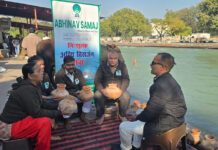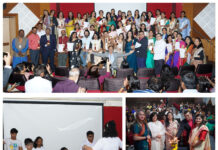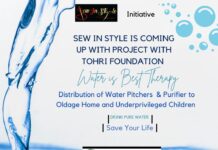Solar Campus Pitch, Plastic-Free Messaging, and ESG Literacy Campaigns Combine to Build Green Mindset Among Students and Faculty
Mumbai, 03 June 2025: Ahead of World Environment Day 2025, Bank of Baroda’s Mumbai Metro North Region initiated an extensive environmental outreach program across 25 educational institutions, aiming to raise climate awareness, promote plastic-free practices, and introduce actionable sustainability solutions to schools, colleges, and engineering campuses.
The outreach aligns with this year’s official United Nations Environment Programme (UNEP) theme — “Beat Plastic Pollution” — and focuses on both behavioral education and infrastructure-driven sustainability. UNEP has declared the Republic of Korea as host for the 2025 global observance, calling for urgent international action to reduce plastic pollution at source.
The campaign’s flagship visit took place at Shree L.R. Tiwari College of Engineering, Mira Road, part of the Rahul Education Group. Under the guidance of DRM (Deputy Regional Manager) and the Regional Office, Bank officials proposed converting the entire college campus to solar power, citing its high monthly electricity cost of ₹15 lakh as both an environmental burden and a financial inefficiency. The proposed transition is projected to eliminate over 600 tonnes of CO₂ emissions annually.
The Bank offered green financing solutions for the project, providing a sustainability-driven financing structure that positions Bank of Baroda as a long-term partner, not just a lender. The college’s leadership expressed strong interest in the proposal and agreed to evaluate project feasibility and impact with a green audit.
As a symbol of shared commitment, a potted plant was presented to Shri Rahul Tiwari, Secretary of Rahul Education, by the Bank’s team. In addition, 10+ saplings were planted across the campus, engaging students in hands-on green activity.
Simultaneously, teams from 53 participating branches conducted drives across 24 additional institutions, including junior colleges, polytechnic institutes, B.Ed. colleges, and general degree campuses. These engagements featured:
- Poster campaigns made entirely from recycled materials (avoiding PVC or plastic flex)
- Interactive sessions with students on campus-level sustainability practices
- Demonstrations of waste segregation techniques
- Talks on long-term energy, water, and waste efficiency in institutional settings
The campaign is aligned with the following United Nations Sustainable Development Goals (SDGs):
- SDG 4: Quality Education – By integrating climate education into learning environments
- SDG 12: Responsible Consumption – By promoting reuse and elimination of plastic in operations
- SDG 13: Climate Action – By pushing for renewable energy adoption
- SDG 17: Partnerships for Goals – Through collaboration between the Bank, educational institutions, and students
The education sector, often overlooked in ESG engagement, here became an active site of transformation — proving that even technical and financial systems can adapt to e mbed sustainability at the core of student development.
🔗 To learn more about the bank’s sustainability initiatives, visit: https://www.bankofbaroda.in/bob-earth
























